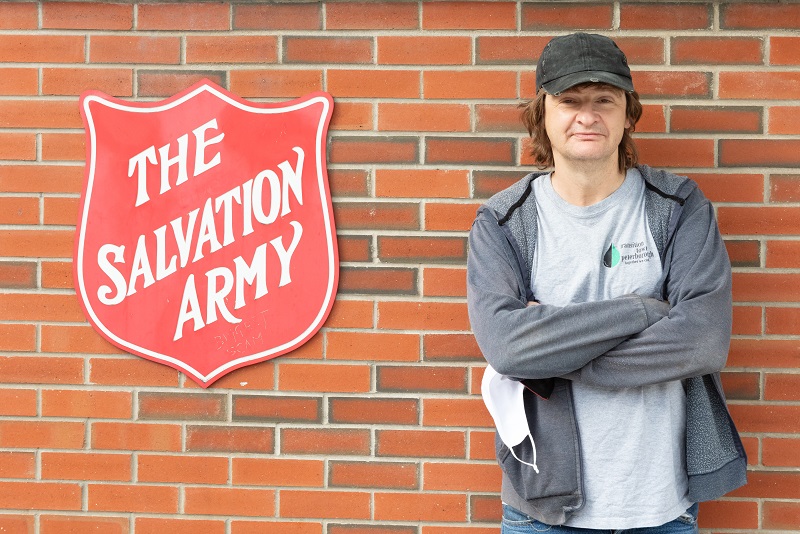The Unexpected Impact of a Prescription Opioid

“No one is immune,” says Paul, 51, of his opioid addiction. Once a productive member of society, a prescription for a back injury led him down a dark hole where the more he used, the more he needed to use. For 18 years, substance use left him experiencing homelessness, intrusive thoughts, and the inability to have sound judgement and sensible actions.
“I was a good employee and held stable jobs,” says Paul. “Then, in my mid 30s, I injured my back at work. I was prescribed OxyContin for pain. I didn’t start out abusing it.”
Paul’s dependency on OxyContin turned into an addiction. When he stopped taking it, he would inject heroine and fentanyl. “I couldn’t think straight,” says Paul. “I would quit for a month and always go back. I was never sure why.”
For many years, Paul was consumed by substance-induced paranoia. His brain was overwhelmed. Voices in his head told him people were bad and out to get him. At times, he would leave a safe shelter bed for a tent, a place to lay in the grass or a park bench.
“The Salvation Army gave me an opportunity to relearn skills I had lost to addiction.”
“Homelessness is rough on your self-esteem,” says Paul. “You feel hopeless and unworthy. You can’t find a job and you think you will never move beyond your problems. You don’t even know where to go to eat.”
Paul knew of The Salvation Army as he had often used the shelter system. Eventually, he detoxed at The Salvation Army’s Centre of Hope in London, Ont. From there, he was referred to Hope Acres, in Glencairn, Ont., a Salvation Army long-term rehabilitation treatment centre for men with substance dependence and concurrent disorders. Paul completed the program, which included individual and group counselling, concurrent disorder and substance-use education classes, relapse prevention classes and training in work-related skills.
“I have no desire to use anymore,” says Paul.
Paul is now living in transitional housing at The Salvation Army Toronto Harbour Light. He has a designated case worker and is learning to be independent again.
“I am hopeful for my future.”
“The Salvation Army gave me an opportunity to relearn skills I had lost to addiction,” says Paul. “I am cooking and shopping for myself again. I am self-reliant, and it feels good. I am hopeful for my future.
“I want to return to the work force. I don’t want to be a burden to society anymore. The Salvation Army not only helped me get back on my feet but their care and compassion keep me going.”
By Linda Leigh
